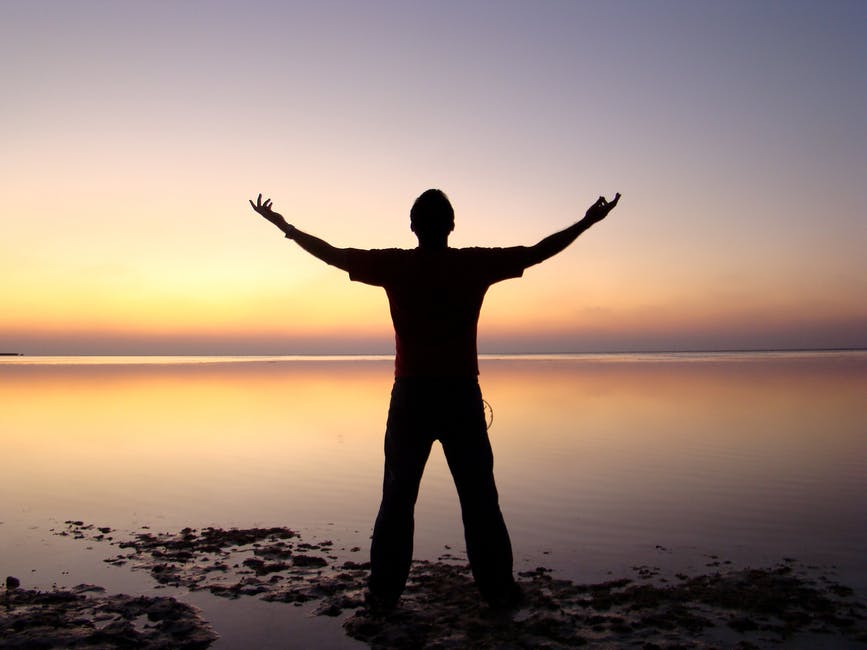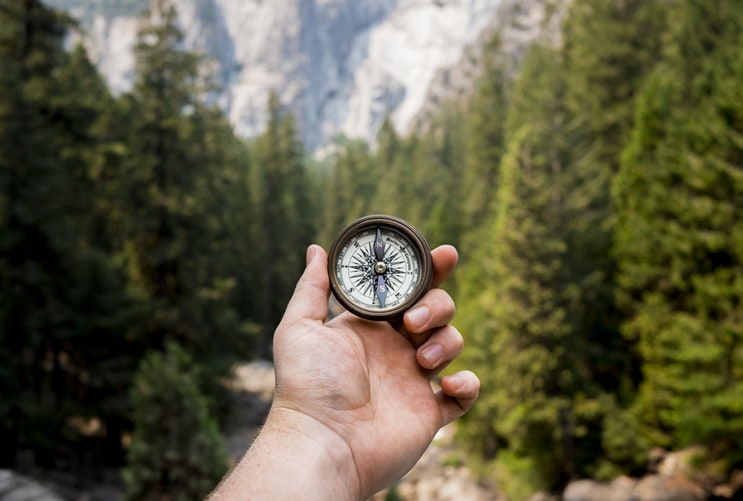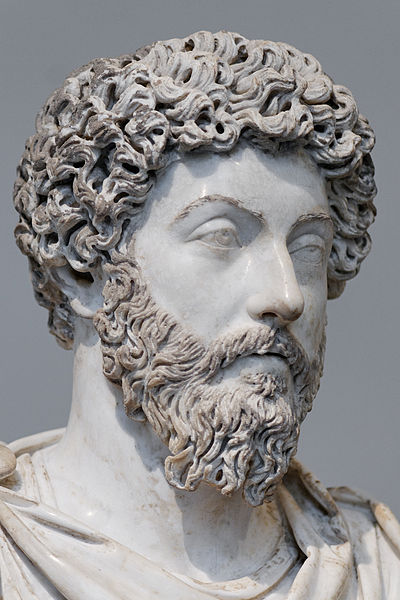Are We Human Beings or Human Doings?
Article By Archana Samarth
 This question is relevant to the times we live in. The pace of life accelerated by the need for constantly moving, rushing, or accomplishing emphasises the importance we associate with doing. Just being when the whole world seems to be caught up in a whirlwind of action, seems so passive! By doing, we feel we are active and taking charge of our lives. But are we really taking charge of our lives and giving them a fulfilling direction? Well, let’s examine this thought in our current context.
This question is relevant to the times we live in. The pace of life accelerated by the need for constantly moving, rushing, or accomplishing emphasises the importance we associate with doing. Just being when the whole world seems to be caught up in a whirlwind of action, seems so passive! By doing, we feel we are active and taking charge of our lives. But are we really taking charge of our lives and giving them a fulfilling direction? Well, let’s examine this thought in our current context.
We live in the century of scientific and technological advancement, rapidly moving into a digital era. We have carried forth the effects of globalisation, supposedly making the world we live in a “global village”. The word “village” evokes images of quietness and togetherness; a community in which birth, marriage, festivals and even death bring everyone together. And yet, despite living in a world brought closer by technology, we seem to be living in a period of increasing strife and separation. Think of what is happening in Syria, for example, or at our own national borders.
Let’s look at an average day in our advanced world. On waking up in the morning, the mind is flooded with a hundred things to do. Thank god for technology, we can manage our bills, funds and even grocery shopping on the internet. In the workplace, we turn on our computers and laptops to find our inboxes bursting with emails, awaiting our attention and action. And before we can start attending to the ones already in queue, more start flooding in. It’s a time of instant response. We are constantly responding to the demands of cyber land and also to the needs and exigencies of the immediate, tangible environment. One almost wishes for snail mail where the gap between sending mail and receiving a reply gave us some breathing space, ample time to think things over, without the pressure of immediate response.
To cope with the increasing and numerous demands, we try to find ways and some “quick fixes”. While cooking in the kitchen, or waiting at the traffic signal, you think to yourself: “Why not make the pending phone call to my parents (or friend)?” After all, we have only 24 hours in the day and 24,000 things to do! And the best solution to deal with this is multitasking, of course! Combining activities, extracting the most of every minute is the key to managing our time! Organisations love multi-taskers. They are believed to increase productivity as they deliver more output with minimum resources. It’s a phenomenon that is not restricted to the workplace, however. Repeatedly, we see people on the roads, talking on the phone while walking, buying things and negotiating the traffic.
Is this good? On the surface it does seem so. But in actuality, it is not. Recent research in neuroscience has found that the brain does not really do tasks simultaneously. In fact, it is said that it just switches between tasks quickly. Each time we move from hearing music, to writing a text message, or talking to someone, there is a stop/start process that happens in the brain. Having to do this swiftly when we are multi-tasking, this process is rough on our brain and rather than saving time, it costs time (even if only micro seconds), it’s less efficient, we are likely to make more mistakes, and over time it can be energy sapping. (1) No wonder that this results in fatigue despite having seemingly managed time and tasks so well!
It is said that Time is the greatest equaliser – the rich, the poor, the student, the corporate executive, men and women – we all have 24 hours in a day. But the one who makes the most of the 24 hours (read “crams” the most) is said to be successful, and most effective. We glorify being perpetually busy since it seems to give a sense of being productive, of doing. But Socrates said, “Beware the barrenness of a busy life.” (2)
Barrenness? When my life is so full of action? Let’s consider this thought. We are constantly in touch with people, and our family and friends are “closer” despite the physical distances, thanks to the wide gamut of electronic gadgets and digital mediums at our fingertips. However, although we are constantly in touch, are we really “connected” in a true sense? It seems easier to connect on the internet than to have a personal, one-on-one dialogue. Ask, what do you prefer – to call or send a text message? Many are likely to prefer the latter. We say that it saves time and is less intrusive… True, it is more convenient. Plus, we don’t really have to listen to the other point of view! But is this a true interaction? Or have we reduced it to a mere transaction?
Technological advancement is not bad. But it is important to ask ourselves if technology is serving us, or if we have become a slave to it? Am I in control, or does it control me? Now, that is the real question!
We play many roles in our lives and every role comes with responsibilities and expectations. In each role, we are trying to satisfy some need: need for affection, financial security, approval, status, power, prestige, and so on. We feel pulled in different directions…we are all running around, doing, doing, doing and stretching ourselves to fulfill our many roles. In trying to fulfill each of our needs, are we being driven internally or from the outside? For example, when do I say I am secure? When I look around me, I see that others have more. Am I satisfied with what I have, or do I feel insecure that I am losing out on something?
I want to give my child the best education, so I send her to a school which all my friends say is the best and where their children are studying. It’s sad that she has to give up her play time by commuting two hours to school every day. But it’s the best school, right? Peer influence works not only on teenagers but also on adult decisions. Trying to keep up with others and meeting their approval, how can we possibly feel like we are in charge of our own lives?
To add to this, we allow ourselves to get further confused between our wants and needs. “Needs” by definition are necessary for survival. “Wants” are self-imposed conditions. Sometimes we convince ourselves that we cannot live without the comforts and luxuries, thereby converting our “wants” into apparent necessities. For example, while it may be nice to have the latest model of a mobile phone, do we really need all of its available features and apps? Perhaps, it is the social pressure working on us. Who dictates what is enough? Are we going on auto pilot, following a herd? It seems like we are being externally driven without even realising it.
In short, “doing” involves being busy, ticking off items on the to-do list, being driven by external stimuli and doing things because it is expected of us, or because it fulfills some never-to-be satisfied need. Moreover, as technology and artificial intelligence pervade our lives slowly and insidiously, the threat of becoming more and more mechanical is looming overhead. The need of the hour then, is to consciously and continuously assert our true human nature.
So then, what about being? Let us first consider what it means to be a human being. Human beings have always asked themselves the question, “Who am I?” Various schools of thought, philosophers and theologians seem to describe the human constitution differently, but the underlying principles remarkably remain the same.
A human being, as described in the Western tradition for example, has the capacity to function at different levels of consciousness wherein his “centre” of consciousness changes and moves from one level to another. So we can say that we have a “lower” consciousness focused on the physical, emotional and mental planes. But we also have a “higher” consciousness, a realm which is beyond the ordinary, referred to as a “supra-mental”. (3)
When survival, comfort and pleasure are our focus, our consciousness is said to be fixed on the physical body. At another level, we are driven by our feelings – I am not in the mood; It’s exciting so let’s do it; I am hurt. Our consciousness can be said to be fixed in the emotional realm. Then there are times when we rationalise, look for facts or let our opinions, likes and dislikes influence our decisions and actions. Here, our consciousness is in the mental plane.
Different traditions speak of an inner battle between two forces that are present in man: one being the more earthly and material, pulling us down and the other raising our awareness to higher realms, “like fire that gives light and rises towards the divine.” (4) This constant battle exemplifies the Human Being, the only creation with the ability to make a choice. Thus it can be said that to be born as a human being is to have a choice: either to allow the reactive lower self to take charge or our higher self to direct our actions and the way we respond to circumstances.
So how do we bridge the gap between our lower and higher selves? How do we make the leap from having the potential to being it? Born as humans beings, are we really expressing our true human potential? And what is this true human potential? When would we say we have truly expressed it?
To be a human being is to be – to be present in the moment completely, body mind and soul as opposed to being partially present, distracted by the many stimuli of the external world. It is to be mindful. It is only when we are mindful that we do justice to the moment before it passes away and is lost. To be is to connect with the purpose of what we are doing and do it justice. For example, when we are with a friend, let us be a friend in the fullest sense. When we say we are citizens, let us be true citizens.
Our mind is like a monkey that jumps from one branch to another. It jumps restlessly from one thought to another, one idea to another, or is constantly moving between the past, present and future. It is fragmented and rarely whole. Often this makes us think, when and where did the moment pass me by? It could be a task we are doing, talking with someone, reading, whatever…The inner monkey takes over and distracts us. These distractions appear in various forms. At times they take the form of a judgemental voice that finds fault, doubts, either the self, or others. At other times, it may take the form of emotional turmoil – when we are upset or angry, we are so caught up in these feelings that the immediate reality does not even register. Sometimes, it is fear and anxiety that distract us and take us away from the moment. It could be anxiety about what others will say about us, or a fear of falling short, of losing something/someone we are attached to. When these voices are loud and strong, they take our attention away from the present. Consequently, we do not experience the moment in its entirety and we lose out on the essence.
In all this doing, are we giving our best? Are we doing justice in our relationships, to our work? Or are we just doing things on auto pilot? This is a question we need to ask ourselves. While deadlines and “to-do lists” are not bad in themselves, it is when we get obsessed with “how much” rather than “how” that we stop doing justice. When we sacrifice quality for quantity, we are very likely to do things at a superficial level and compromise depth. And to be is to bring depth and meaning into what we do.
The Ancient Egyptian culture emphasised the importance of doing everything with sacredness and bringing meaning into whatever they did. They had a term for it, nether. So we can say that to be is to bring nether into everything we do and fulfill its meaning, its purpose. While conversing for example, let us speak in a way that others understand us and let us also listen with intent to understand. Whether we breathe, eat, pray, work, etc., let us do it because we connect with its meaning, its purpose and not just because it is expected of us. Let us do it wholeheartedly, with commitment and by giving the best of ourselves.
Yet another interesting ancient Egyptian concept is that of mahat, i.e. Justice. To do justice is to fulfill one’s potential. When can we say we have fulfilled our potential? Perhaps, we can begin to fulfill our potential only after we have identified the purpose of our existence. Is it to accumulate wealth or power? Or is it to know who I am, why have I been given the opportunity of this life? There must be a deeper meaning. Perhaps, it is to understand life; to grasp the meaning of the changes and the cycles, the ups and downs, and the intelligence and patterns in life. In short, the purpose of our life could be to seek truth. To quote Socrates the Greek Philosopher, “Wonder is the beginning of wisdom.” Wonder that was left behind with our childhood.
To be human is to experience entheos (a Greek term meaning “filled with God or divinity”). It means to see divinity in everything – the people around you, the trees, the animals and creatures and even in the stones and the sand. Enthusiasm comes from the knowledge that I am interacting with something which is divine, and that I have a higher purpose.
The main difference between being an animal and being human is to be able to make choices. Human beings have the ability to elevate our consciousness and to realise that what limits us is our identification. To choose from an identity of the higher consciousness is to see that we are not defined by this body, we are not our emotions, we are not our ego but we are much more and that we can stop ourselves from being carried away by them. By doing this, we exercise our Free Will; the will to make choices, to be who we really are, to pursue our real purpose in life and to do what is right. Sure, this is not easy, but it can definitely be exercised and practiced.
To conclude we can say that to choose between being or doing is not a really a question. Because it is not this or that but it is both. We need to live with the paradox of both doing and being at the same time. What is important is to bring more being into the doing so as to lead a meaningful life, and express our human potential.
Image Credits: By Tumisu | Pixabay | CC0
The entity posting this article assumes the responsibility that images used in this article have the requisite permissionsImage References
By Tumisu | Pixabay | CC0
Permissions required for the publishing of this article have been obtained
Article References
1. Napier, Nancy K. The Myth of Multitasking.




What do you think?